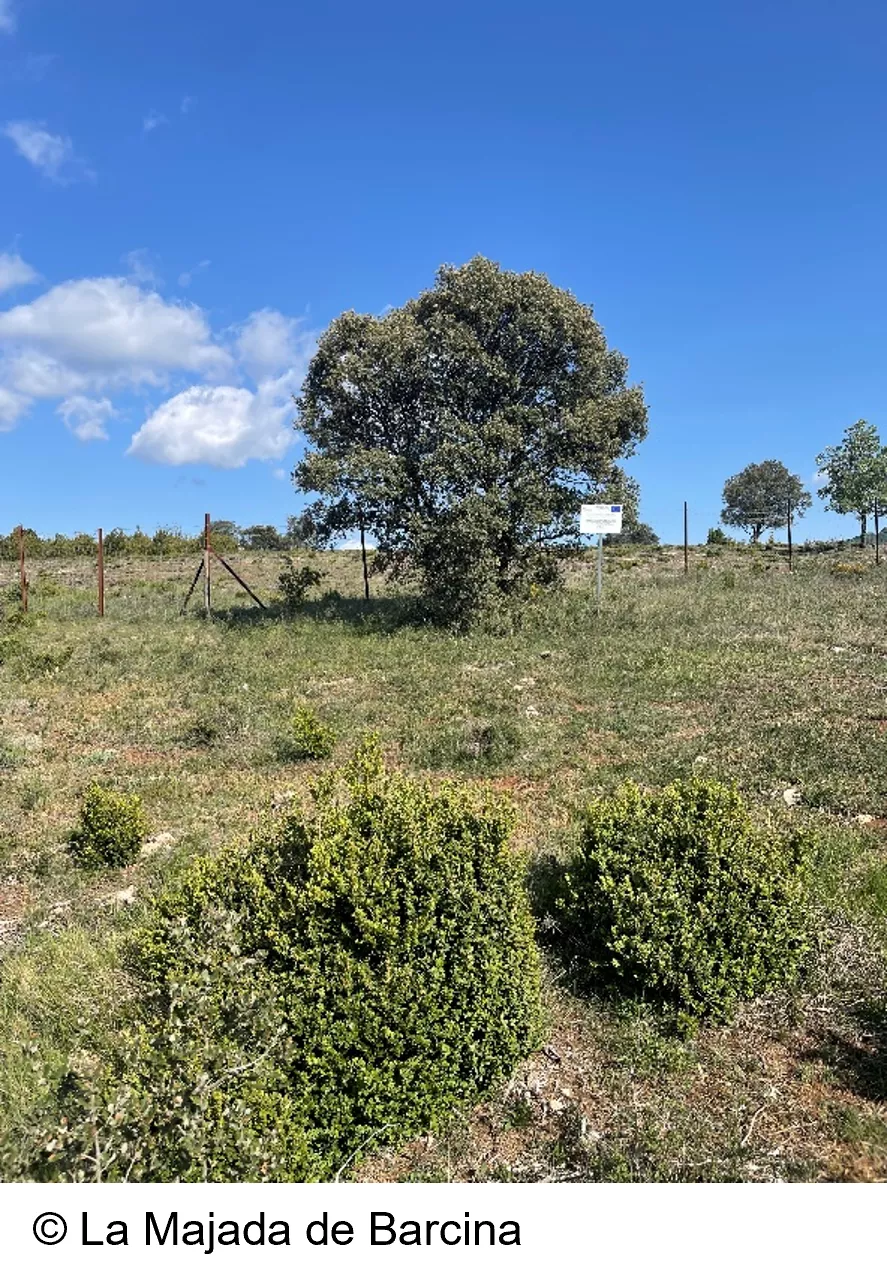General information
RDP Priority
- P4. Ecosystems management
RDP Focus Area
- 4A: Biodiversity restoration, preservation & enhancement
RDP Measure
- M08: Investments in forest areas
Summary
Majada de Barcina is an organic-certified family business dedicated to sheep farming in Barcina de los Montes, a municipality in the province of Burgos. They have a flock of 700 sheep which graze in a natural park area. Many parts of the park have been abandoned and are increasingly becoming overgrown with scrub vegetation. CAP support was used to clear areas of scrubland to open up new pastures and set up enclosures to protect livestock from attack, thus enabling extensive grazing - an important part of organic farming.
Results
- Livestock productivity has been improved by maintaining an extensive farming system that makes the most of natural resources.
- The mosaic landscape structures are maintained, which favours a greater diversity of flora and fauna.
- Another benefit is the protection of the natural environment from forest fires.
Promoter
La Majada de Barcina
Funding
Total budget 49 998.93 (EUR)
EAFRD 26 499.43 (EUR)
National/Regional 23 499.50 (EUR)
Sujets
Ressources
Documents
EU CAP Network - Good Practice - Majada de Borcina
(PDF – 650.8 Ko)
Context
Majada de Barcina is a family business located in the heart of the Montes Obarenes natural park, in the municipality of Barcina de los Montes, in Burgos province, Castilla y León. This mountainous landscape is an area of great natural wealth but, in some parts, the traditional forest has been abandoned and is now overgrown with scrub vegetation. Consequently, there has been a significant loss of grazing land and biodiversity.
The Majada de Barcina company practices organic and extensive sheep farming. They have a flock of 700 sheep of the Churra breed, grazing across a combination of the company’s own land and other plots leased from the Barcina de los Montes neighbourhood council, within the Montes Obarenes-San Zadornil natural area. Initially, they started breeding a flock of Churras sheep, the oldest breed in Castilla y León, and later on they started to process the milk according to environmentally friendly standards and local customs. Their artisanal cheese factory received organic certification in 2006 and distributes produce to several local retailers.
Extensive rearing is a core part of this traditional production process and has a very positive impact on controlling wild vegetation and preventing forest fires. In recent years, Majada de Barcina has carried out a series of clearing operations to remove scrubland and open up pastures in this natural area. This work was financed by Measure 8 – Investments in forest area development and improvement of the viability of forests of the Castilla y León Rural Development Programme to support interventions to improve and prevent damage to forest land through silvopasture. The work began in 2017 and was financed for a period of five years.
Objectives
Majada de Barcina's work to clear pastures and enclose livestock aimed to:
-
Increase the extensive grazing of the sheep flock.
-
Make grazing compatible with other forest land uses.
-
Increase safety and protect the flock from possible attacks by predatory animals.
-
Prevent forest fires by carrying out continuous maintenance work on the land to control the vegetation by grazing.
Activities
Majada de Barcina has implemented two specific actions:
-
Clearing the areas of scrub that were invading certain parts of the natural park. In this way they opened up pastures so that livestock can graze extensively and keep the forest in good condition. The possibility for sheep to graze extensively in semi-arid areas reduces the amount of vegetation on the ground and thus the possibility that, in the event of a fire, flames spread over the whole area. In addition, grazing helps to keep paths and access routes to the forest more accessible for the fire-fighting services. This activity creates a mosaic landscape structure in the terrain that supports a greater degree of biodiversity.
-
Enclosure of livestock through the fencing of the plot. This fencing gives the farmers peace of mind by keeping the livestock enclosed and out of danger.
The successful implementation of this project has led to further applications for CAP support. The aim of one of the planned actions is to address the need to find wells to ensure the availability of water for livestock, given the scarcity of water sources in the area.
Main results
-
Livestock productivity has been improved by maintaining an extensive farming system that makes the most of natural resources. In addition, mosaic landscape structures are maintained, favouring a greater diversity of flora and fauna and protecting the natural environment from forest fires.
-
This project has had a positive impact on nature by contributing to the restoration, preservation and improvement of biodiversity through agricultural systems of high natural value. It supports soil management and prevents erosion, thus promoting conservation and carbon sequestration.
Key lessons and recommendations
-
The positive experience of implementing a CAP-funded project has encouraged the project leaders to apply for further CAP support to extend the work to other areas.
-
CAP funding is incredibly valuable to extensive livestock farmers as it enables them to keep their livestock out on the mountains and maintain traditional farming practices. Further support is needed to enable prospecting for water sources, so that extensive grazing can be sustained in the long term.
